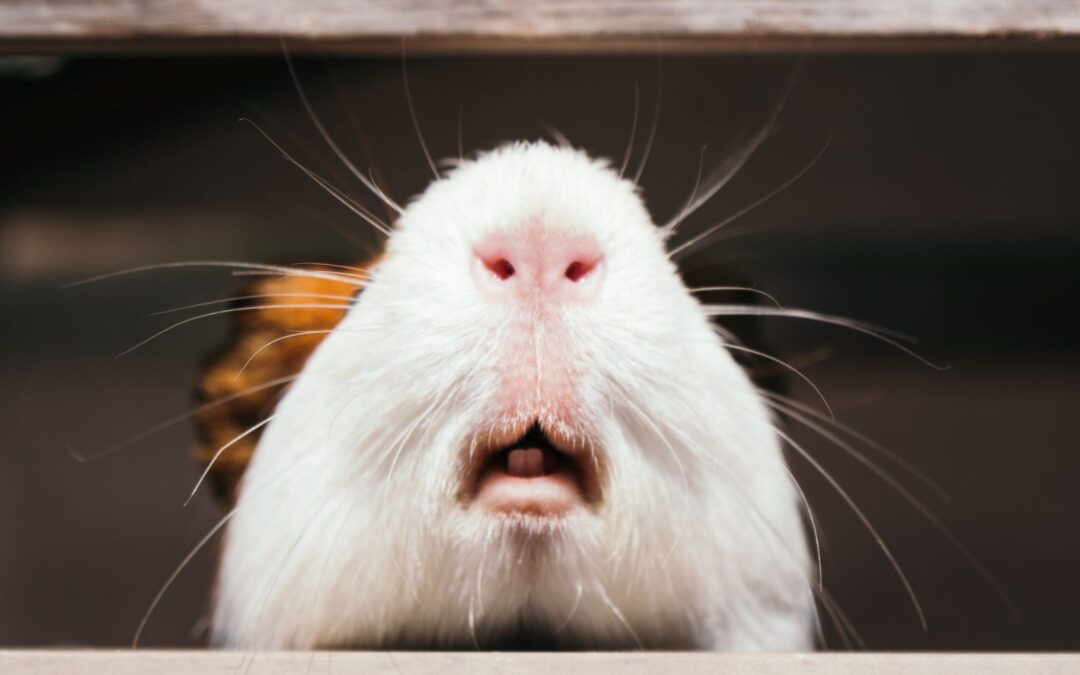Guinea pigs are one of the more common pint-sized pets that people gravitate towards. We are happy to be your resource for all things guinea pig care related if you decide a guinea pig is the pet for you.
Piggie Considerations
Guinea pigs can make really great pets. When it comes to exotic pet care, though, the first step in deciding whether you should own one is understanding the species. Every pocket pet species has unique needs.
Things you should know before getting a guinea pig as a pet:
- Guinea pigs can live for several years (on average 5-7)
- They are social and do best with a buddy (although be careful that you don’t accidentally get guinea pig babies)
- Piggies are very vocal and can be quite loud
- There are three main types of guinea pigs—the domestic shorthair, the Abyssinian with medium hair, and the long-haired guinea pig also called the Peruvian
- With some patience, they easily learn to be handled and can be a good first pet
- They need a quality diet vitamin C and roughage that includes fresh produce
Because people aren’t always aware of how long of a commitment they are making when bringing home a guinea pig, they are not infrequently found at shelters and rescues. Consider adopting a guinea pig before buying.
Is a Guinea Pig Easy to Take Care Of?
Guinea pig care is not terribly complicated, but it does require some effort. Proper piggie care consists of:
- A healthy diet—Good guinea pig care starts with clean, fresh water. Pigs are notorious for dirtying their water even in a sipper bottle, so frequent changes are necessary. Your guinea pig will also need commercial pellets to eat, roughage like timothy hay, and fresh fruits and veggies daily. Choices rich in vitamin C (like greens) are great. Avoid grapes, onions, avocados, and garlic. Uneaten produce should be removed daily.
- An appropriate enclosure—Guinea pigs need a solid-bottomed enclosure large enough for them to run around and play. They also need clean, soft bedding such as wood shavings or timothy hay. Bedding must be changed every few weeks to prevent ammonia buildup. Guinea pigs also enjoy having a hiding place in their enclosure.
- Socialization and stimulation—A playmate, daily handling, and toys in their enclosure are important. Many guinea pigs enjoy tunnels and objects to chew.
- Dental care is important—Guinea pigs have teeth that continue to grow throughout their lifetime. It is important that they have ample opportunity to chew in order to grind them down. If they become overgrown, our team may need to help control them.
- Veterinary visits—Pocket pets need veterinary care, too. We recommend seeing guinea pigs at least yearly for a wellness examination and a fecal screening test.
When it comes to pocket pets, we think piggies are one of the best! Guinea pig care is fairly straightforward, but never hesitate to contact us with questions or concerns.

